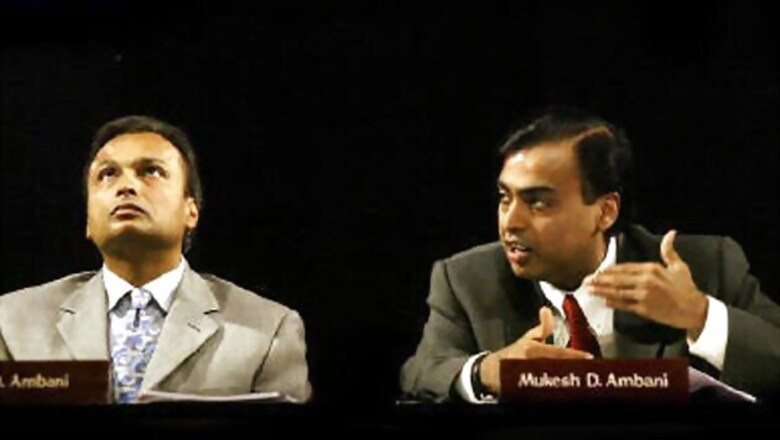
views
New Delhi: The average annual compensation for a CEO in India stands at over Rs 2 crore and is nearly 2.6 times the pay package for other top business executives in the country, as per a new study.
According to the top executive compensation report 2011-12, released by global management consultancy Hay Group on Thursday, the average CEO (Chief Executive Officer) compensation has crossed Rs 2-crore mark, on cost-to-company (CTC) basis.
A CTC pay package typically includes salary, bonus, commissions, reimbursements, and various other benefits. For the next level of top executives (excluding the CEO), the average pay package is now above Rs 1 crore, it added.
The study further pegged the average CEO compensation at "larger, more complex organisations" at more than Rs 7 crore.
Hay Group said the CEO compensation has seen an increase on a year-on-year basis and the uptrend is likely to continue going forward, as there is a lack of "holistic" CEOs.
Besides, the cross-sector employability of CEOs is also likely to fuel the compensation packet, the study said.
Hay Group' Rewards Practice Leader Sridhar Ganesan said that the average CEO salary in the country is now 2.6 times that of the the rest of the executive population, in terms of total pay package.
While the exact increase in the CEO pay levels could not be ascertained, the government data shows that India's per capita income grew by 15.6 per cent to cross Rs 50,000 level for the first time in 2010-11. It is expected to further cross Rs 60,000 level in the current fiscal, ending March 31, 2012.
As per the data disclosed by listed companies, their top-management remuneration grew by 36 per cent in 2010-11, while the rise in overall staff costs was about 18 per cent.
"The Indian CEO market has always seen a large pool of 'operationally-excellent' CEOs, but a constant scarcity of 'managing-business' CEOs has driven compensation high," Hay Group' Ganesan said.
"This also has implications on the next line of top executives - the average CEO's salary is 2.6 times that of the rest of the executive population, in terms of total CTC, excluding long-term incentives (LTIs)," he noted.
Ganesan said that compensation is expected to further spiral upwards owing to the increasing cross-sector employability of CEOs and the new breed of 'lateral CEOs'.
Citing instances of such cross-sector movements, he said that a global cement major has recruited an Indian investment banker as the CEO of its India operations, while the head of Indian manufacturing company has joined an IT company to lead its manufacturing vertical.
Amid current economic parameters, organisations are adopting some amount of caution. But since there is scarcity of holistic CEOs, if we balance out the cautious approach and the scarcity we will still see some amount of hike in CEO compensation going forward, he added.
The report said that employers are giving increasing importance to "performance" as the percentage of variable pay component has increased in the overall compensation.
The study further noted variable pay as a percentage of fixed CTC was in the range of 15 to 30 per cent. Besides, for both CEO/MD levels and other executives, there is a growing trend of long-term incentives, the study said, adding stock options are the most prevalent vehicle.
There is, however, very little total compensation differential between top executives across core and enabler functional roles, indicating that the reward philosophy driving business accountability as a top 'team' rather than a few stakeholders is here to stay.
The report features insights from about 87 organisations across sectors, analysing compensation practices of top executives - CEOs, their direct reports, and heads of businesses as well as functions.
Hay Group said its report was designed to enable organisations to understand prevailing compensation practices and trends, and assist them in formulating market-aligned and business-model affordable compensation for top executives.














Comments
0 comment